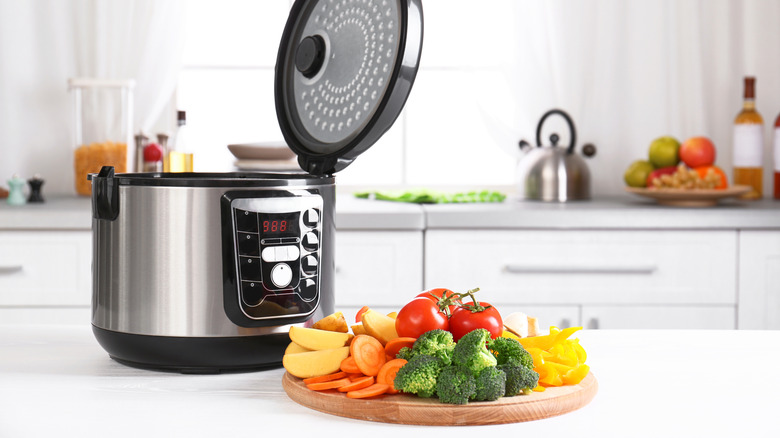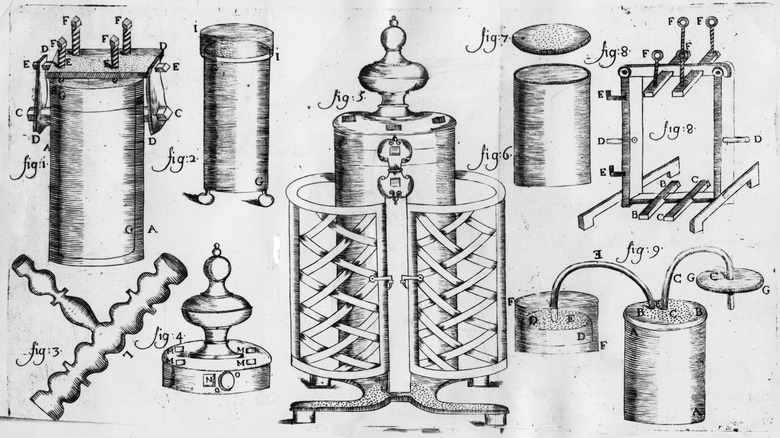The French Physicist To Thank For The Pressure Cooker
If you've ever used an Instant Pot, you already know the wonders of the pressure cooker. According to Digital Trends, a pressure cooker creates a sealed compartment where liquid turns into steam and generates pressure inside the pot. Not only does this increased pressure push moisture into food (ideal for rice or beans), allowing it to get soft and tender, but it can also raise the temperature inside the pot to 250 degrees Fahrenheit. The main advantage of pressure cookers, according to Corrie Cooks, is that food typically cooks about 30% faster than it would on the stove using conventional methods.
Since it's one of the most popular pressure cookers on the market, it's easy to assume that Instant Pots are the only ones around. But there's actually a wide variety of them available — in both low- and high-tech versions. NBC News rated the Breville Fast Slow Pro Pressure Cooker the best one of 2021, while the Instant Pot Duo came in fourth place. The popularity of the Instant Pot should be credited to those that touted the pressure cooker's impressive versatility, as you can make everything from ribs to yogurt in one, according to How Stuff Works.
Today's pressure cookers are pretty capable machines, able to cook a lot of food quickly and with little effort. And that was, of course, the futurist hope of the French physicist that invented it.
Papin's Digester was the first-ever pressure cooker
Pressure cookers may seem like a modern device, but they were actually invented in the 1600s, when French physicist Denis Papin came up with the first-ever cooker, according to The Spruce Eats. Then, it was known as Papin's Digester, though the concept has been essentially unchanged since then, even down to the steam release safety valve in his design, which prevented the pot from bursting (via Britannica).
Although Papin also came up with the idea for the original cylinder and piston steam engine, it was the pressure cooker that granted him admittance to the Royal Society of London, The Spruce Eats shares. The Society was blown away by Papin's Digester after watching it cook bones down to the consistency of cheese, Condé Nast Traveller explains — although whether anyone actually ate the mushy bones, we can't be sure. But the pressure cooker didn't become truly mainstream until the 20th century, when it was displayed at the New York World's Fair in 1939, and was adapted for in-home use in 1945, according to How Stuff Works.
Fast forward to the 21st century, and the global pressure cooker market was worth $4.47 billion in 2020, with a 7.2% growth projected by 2028, according to Fortune Business Insights. So while it may have taken a couple of hundred years for Papin's invention to gain some steam, his digester ultimately became a huge success.

